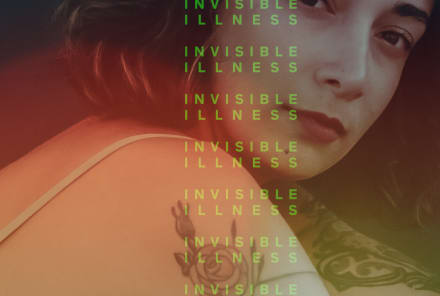Advertisement
The Birth Control-Libido-Nutrient Connection You Need To Know About



"It all started about three months after I began the pill," my 33-year-old patient Joanne told me during our initial consultation. "My sex drive was nearly zero, and I literally had days when I couldn’t get out of bed. Things got so bad, my doctor eventually suggested Prozac."
Besides feeling libido-less and frequently depressed, Joanne felt tired and moody once her doctor started her on the pill. She also noticed more spider veins in her legs, which she said made her look "decidedly unsexy" wearing shorts in yoga class. And while I totally honor loving your body where it’s at, I also see how physical symptoms damage someone's confidence and self-esteem.
Let's talk about birth control and nutrition.
As a naturopathic doctor who helps women reverse autoimmune disease and balance their hormones, I see many women like Joanne who struggle with these and other side effects from using oral contraceptives. Many express frustration when I reveal what their conventional doctor doesn’t: The pill can deplete nutrients like crazy, and the results aren’t pretty.
Researchers have found that oral contraceptive-related nutrient deficiency symptoms include weakness, fatigue, difficulty walking, pale or yellow skin, headaches, nausea, dizziness, decreased libido, and depression. And for the record, the knowledge that the pill depletes nutrients and creates these as well as other complications isn’t exactly cutting-edge information. "Major effects of oral contraceptives on nutritional status are elevation of triglycerides, decline in glucose tolerance, an apparent increase in the need for folate and vitamins C, B2, and B6 and a decrease in iron loss," researchers noted1 in one study nearly four decades ago. Yup: Researchers knew this stuff back in the 1970s.
Oral contraceptives leave you vulnerable to deficiencies.
Let’s back up and look at vitamin B6 and depression. Studies show birth control users abnormally metabolize tryptophan, an amino acid that your body converts to the feel-good neurotransmitter serotonin. And researchers2 have suggested supplementing with 25 mg of tryptophan daily—that’s 12 times the normal recommended daily amount—to correct the problem. Another ancient study3 (ancient in science terms, at least) found 80 percent of oral contraceptive users had a relative B6 deficiency and 20 percent an absolute deficiency. Here’s the link: You need vitamin B6 to convert that amino acid (tryptophan) into serotonin.
B vitamins aside, studies4 show birth control pills deplete vitamins C and E as well as minerals like magnesium, selenium, and zinc. Others show the pill lowers overall antioxidant status. One study among 30 women looked at how three contraceptive methods affected nutrients like alpha-tocopherol and gamma-tocopherol (two types of vitamin E) as well as total antioxidant capacity. Researchers also found5 that levels of the antioxidant coenzyme Q10 (CoQ10) and alpha-tocopherol were significantly lower in contraceptive users compared with non-birth-control users.
You need to know this about the pill and disease.
"You don’t need Prozac," I told Joanne. "You need to optimize your nutrient intake." It isn’t just vitamins that get depleted, I explained to her. Birth control pills deplete a ton of nutrients. "Oral contraceptives cause a depletion of a wide range of vitamins, minerals, amino acids, neurotransmitters, and antioxidants," writes Pelton in his book The Pill Problem. "In most cases, a woman is unaware of a problem until 20 or 30 years later." Pelton says most doctors aren’t aware such problems exist because they don’t have time to research the latest studies to see how oral contraceptives potentially increase your risk for numerous problems including depression, weakened immunity, heart disease, and cancer.
Take cardiovascular disease6 (CVD), the No. 1 cause of death for females. Along with stroke, CVD causes one in three women’s deaths each year, killing one woman about every 80 seconds. Statistics show about 44 million women in the United States are affected by cardiovascular diseases. And while numerous factors contribute to that problem, chief among them is nutrient deficiencies. Vitamins B6, B12, and folate metabolize homocysteine—a compound that can increase cardiovascular risk when it stays elevated. Because the pill depletes these vitamins, one study7 among contraceptive users found the pill could adversely alter homocysteine as well as the inflammatory marker C-reactive protein (CRP) levels.
This is how I help my patients protect their bodies.
For Joanne and other patients who are on birth control pills—or who visit me to discuss alternatives—my first recommendation is a nutrient-dense diet. Studies8 show that women are already low in nutrients like riboflavin, so birth control pills only make the risk of deficiency worse. The dietary plan I give my patients includes plenty of protein-rich foods like wild-caught fish, antioxidant rock stars like leafy and cruciferous veggies, as well as berries, avocado, and other low-sugar fruits, and mineral-rich nuts and seeds.
1. A full-spectrum, professional-grade multivitamin-mineral.
3. CoQ10: for extra antioxidant support.
4. A B-vitamin complex: to replace B vitamins depleted by the pill.
5. Magnesium: Taken before bedtime, this mineral helps patients relax and get better sleep.
Two months later, Joanne had a follow-up visit, and she felt significantly more confident and upbeat. Her sex drive was returning to normal, and she felt more confident in yoga class.
Wendie Trubow, M.D. stresses the importance of monitoring your body when you’re on the pill and taking measures to counteract any imbalances that arise.
If you're ready to quit the pill for another birth control option, here's what will happen in your body.
10 Sources
- https://www.ncbi.nlm.nih.gov/pubmed/760421
- https://www.ncbi.nlm.nih.gov/pubmed/7001015
- https://www.ncbi.nlm.nih.gov/pubmed/12263394
- https://www.ncbi.nlm.nih.gov/pubmed/23852908
- https://www.ncbi.nlm.nih.gov/pubmed/20814444
- https://www.ncbi.nlm.nih.gov/pubmed/23047015
- https://www.ncbi.nlm.nih.gov/pubmed/22137941
- https://www.ncbi.nlm.nih.gov/pubmed/7400487
- https://www.ncbi.nlm.nih.gov/pmc/articles/PMC3465475
- https://academic.oup.com/jcem/article-abstract/101/9/3370/2806637/Use-of-Estrogen-Containing-Contraception-Is?redirectedFrom=fulltext
Watch Next
Enjoy some of our favorite clips from classes
Enjoy some of our favorite clips from classes
What Is Meditation?
Mindfulness/Spirituality | Light Watkins
Box Breathing
Mindfulness/Spirituality | Gwen Dittmar
What Breathwork Can Address
Mindfulness/Spirituality | Gwen Dittmar
The 8 Limbs of Yoga - What is Asana?
Yoga | Caley Alyssa
Two Standing Postures to Open Up Tight Hips
Yoga | Caley Alyssa
How Plants Can Optimize Athletic Performance
Nutrition | Rich Roll
What to Eat Before a Workout
Nutrition | Rich Roll
How Ayurveda Helps Us Navigate Modern Life
Nutrition | Sahara Rose
Messages About Love & Relationships
Love & Relationships | Esther Perel
Love Languages
Love & Relationships | Esther Perel

















